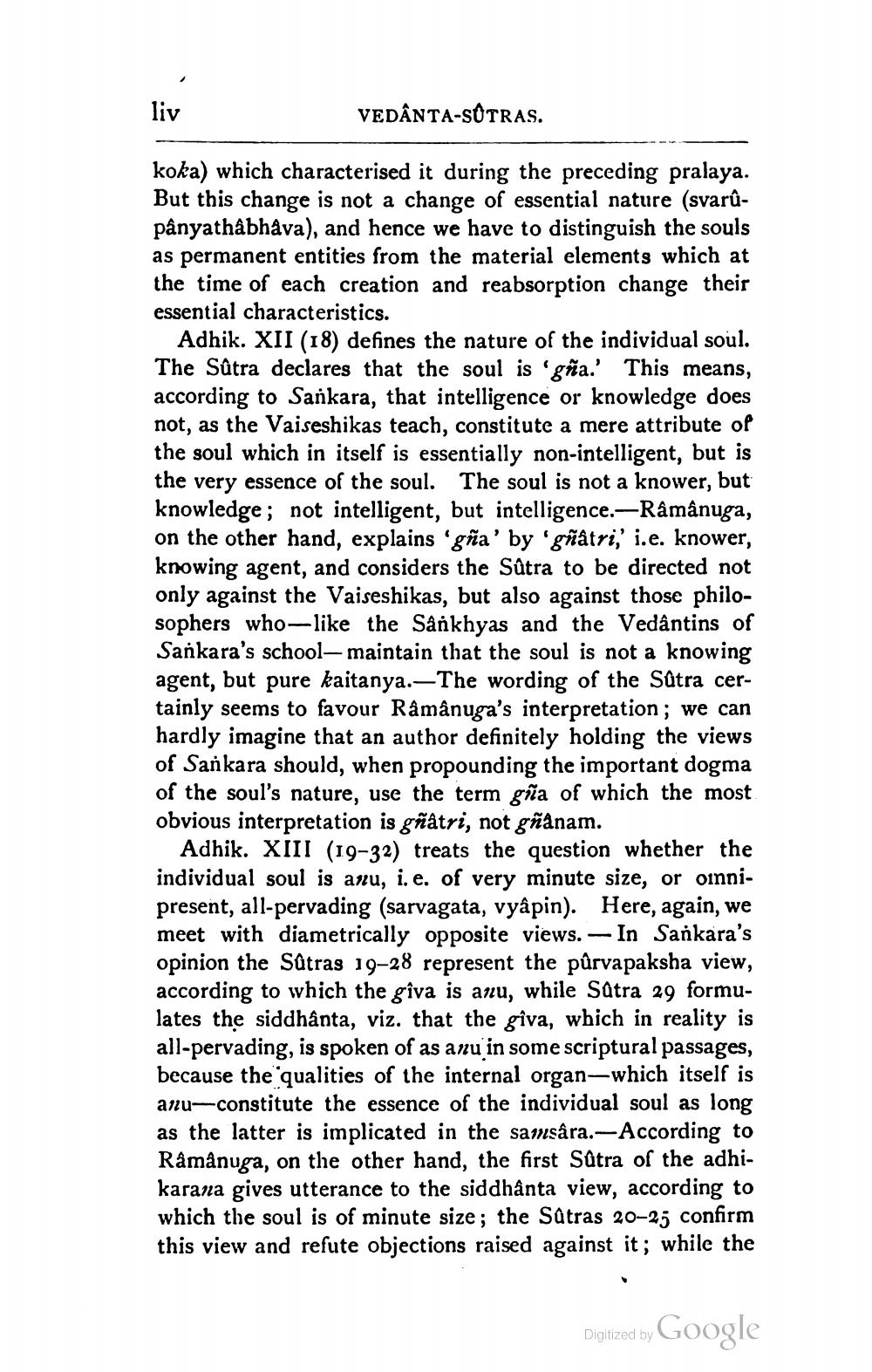________________
liv
VEDÂNTA-SOTRAS.
koka) which characterised it during the preceding pralaya. But this change is not a change of essential nature (svarûpânyathâbhava), and hence we have to distinguish the souls as permanent entities from the material elements which at the time of each creation and reabsorption change their essential characteristics.
Adhik. XII (18) defines the nature of the individual soul. The Sûtra declares that the soul is 'gña.' This means, according to Sankara, that intelligence or knowledge does not, as the Vaiseshikas teach, constitute a mere attribute of the soul which in itself is essentially non-intelligent, but is the very essence of the soul. The soul is not a knower, but knowledge; not intelligent, but intelligence.-Râmânuga, on the other hand, explains 'gña' by 'gñatri,' i.e. knower, knowing agent, and considers the Sútra to be directed not only against the Vaiseshikas, but also against those philosophers who— like the Sankhyas and the Vedântins of Sankara's school- maintain that the soul is not a knowing agent, but pure kaitanya.—The wording of the Sätra certainly seems to favour Râmânuga's interpretation; we can hardly imagine that an author definitely holding the views of Sankara should, when propounding the important dogma of the soul's nature, use the term gña of which the most obvious interpretation is gñatri, not gñanam.
Adhik. XIII (19-32) treats the question whether the individual soul is anu, i. e. of very minute size, or oinnipresent, all-pervading (sarvagata, vyâpin). Here, again, we meet with diametrically opposite views. — In Sankara's opinion the Sætras 19–28 represent the pûrvapaksha view, according to which the giva is anu, while Satra 29 formulates the siddhânta, viz. that the giva, which in reality is all-pervading, is spoken of as anu in some scriptural passages, because the qualities of the internal organ—which itself is anu-constitute the essence of the individual soul as long as the latter is implicated in the samsâra.-According to Râmânuga, on the other hand, the first Satra of the adhikarana gives utterance to the siddhanta view, according to which the soul is of minute size; the Sutras 20-25 confirm this view and refute objections raised against it; while the
Digitized by Google




